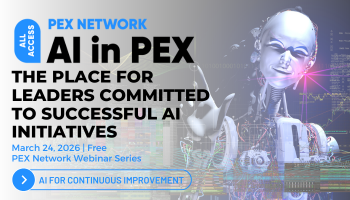Police to use AI-powered digital twins to prevent & treat work-related injuries
Virtual profiles integrate data from a range of sources including musculoskeletal information, officer roles, physical activity levels, health status and injury recovery progress
Add bookmark
Police officers in Lincolnshire will be the first in the UK to use artificial intelligence (AI) powered digital twins to predict, prevent and treat work-related injuries.
The technology will help more than 2,200 police officers and staff avoid injuries and improve their fitness through tailored clinical physiotherapy recommendations provided by personal digital models.
EQL’s digital musculoskeletal (MSK) platform, Phio, creates virtual profiles of individual police officers as well as entire teams, such as response units or investigative squads.
Digital twins are transforming the way businesses manage operations, optimize efficiency and improve decision-making. By creating real-time virtual replicas of physical assets, processes or systems, organizations gain insights into performance, predictive maintenance and overall operational health.
This technology is being adopted across industries such as manufacturing, healthcare, energy, smart cities and aerospace, with market growth projected at a compound annual rate of 35.7 percent between 2024 and 2030.
Join the PEX Network community

Don't miss any news, updates or insider tips from PEX Network by getting them delivered to your inbox. Sign up to our newsletter and join our community of experts.
Learn MoreAI-powered digital twins track and prevent police injuries
The virtual profiles integrate data from a range of sources including musculoskeletal information, officer roles, physical activity levels, health status, injury recovery progress and, where available, input from wearable or smart devices, according to Police Professional.
This data enables Phio to predict an officer’s most likely injury and deliver instant or preventative medical and physiotherapy support via the Phio app.
AI analyzes the data sources to spot early signs of potential problems, such as strain on a joint or inefficient movement patterns, and can recommend adjustments before pain begins. For officers recovering from injury or surgery, the digital twin tracks individual progress, informing physiotherapists about how well the person is recovering and responding to treatment and alerts when rehabilitation plans need fine-tuning or progressing.
“The health and fitness of our officers is paramount,” said Helen Mumby, health and care lead at Lincolnshire Police. “Policing is physically demanding, and injuries on the frontline are, unfortunately, all too common. By introducing EQL’s virtual digital twin technology and physiotherapy platform, we can take a proactive approach to injury prevention and recovery. This physiotherapy service is aimed at helping officers stay fit, recover faster and remain ready to serve the public.”
Register for All Access: AI in Business Transformation 2025!
A powerful AI model that learns, adapts and delivers
The partnership is an exciting milestone and a step that could transform health outcomes in the force and demonstrate the innovation possible in the public sector, commented Pete Grinbergs, chief medical officer and co-founder at EQL. “We’ve built the foundations of the digital twin architecture, and as we progress with Lincolnshire Police, every new data point will strengthen the platform, creating a powerful AI model that learns, adapts and delivers ever-greater value over time.”
Last month, researchers from the Pusan National University, South Korea, have published a new calibration framework for digital twins. The framework promises improved prediction accuracy for digital twins of automated material handling systems (AMHSs) in semiconductor and display fabrication industries.
All Access: AI in Process Excellence 2026

Don’t get left behind. Join us at All Access: AI in Process Excellence to learn from leading experts, thought leaders, and practitioners who are on the ground experimenting, researching, and learning how to best use AI. They will share their secrets with you for free. And you’ll have the opportunity to network with fellow professionals as we navigate this new world. Register now to save your spot.
Register Now






